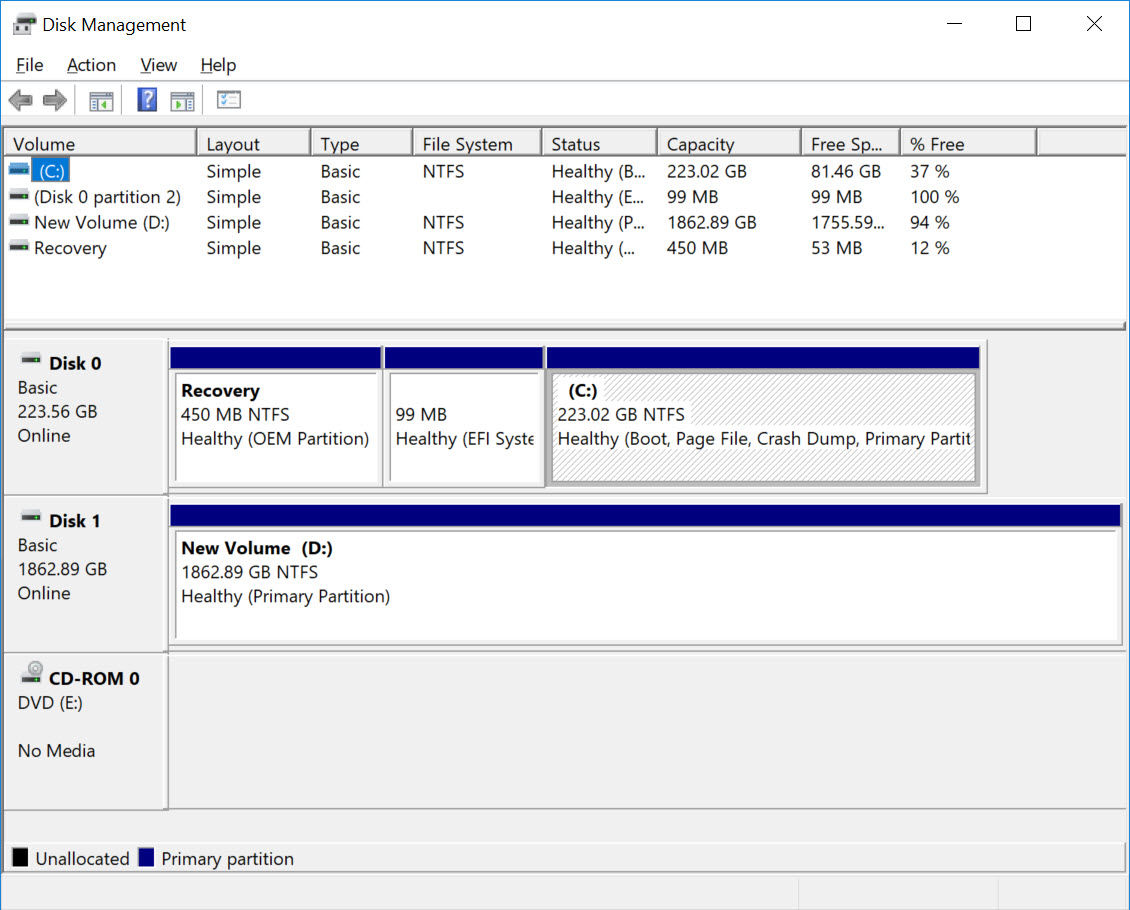We’re using Windows 10 here, but the steps apply to older versions as well.
How can I create a partition?
First, you’ll need some empty space. If you’ve just installed a brand new hard disk, the wizard should pop up when you first launch Disk Management. To do that, right click on This PC in File Explorer and click Manage. Then choose Disk Management from the left-hand pane of the Computer Management screen.
Alternatively, type ‘partition’ in the search bar in Windows 10 and click on ‘Create and format disk partitions’. Here we have a formatted 2TB hard drive that has a single partition. We want to split this so there are two separate 1TB partitions. First, make sure there is at least 1TB of free space on the drive since you cannot shrink the existing partition if the drive is full. Now, right-click on the partition and choose Shrink Volume…
Enter the size to reduce the partition by (i.e. the size you want your new partition to be) and click Shrink. Note that the number is in MB, which isn’t ideal. 100GB in MB is 102,400. 1TB is 1,024,000MB, but as hard drives tend to say 1TB = 1000MB, and formatted (usable) space is less than that, you’ll probably find that it’s easier to round down to the nearest thousand or even 10,000.
If all you see is a spinning circle after a few minutes, you can close down the Disk Management window and open it up again as described above. You should now see some unallocated space on the hard drive. Right-click in the empty space and choose New Simple Volume…
The wizard will ask you to choose the size for the new partition, but chances are you’ll want to use all the available space. If not, enter the size in MB. Click Next and choose a drive letter for the new partition or leave it set to the default, which will be the next available letter in the alphabet. Now you’ll see the format settings. If you don’t know what you’re doing, leave these alone – the defaults are the best choices in the vast majority of cases.
What you might want to do is type in a name for the drive next to Volume Label. Otherwise it will be called ‘New Volume’. Leave ‘Perform a quick format’ checked and click Next. After a few seconds your new partition will be created and it will be visible in File Explorer, ready to receive files.
If you need to do anything more complicated than shrinking, deleting or creating new partitions, you might find that paid-for partitioning or hard drive management tools are what you need. For example, you can’t clone a hard drive using Windows’ own tools, but with dedicated cloning software, it’s an easy job. Jim has been testing and reviewing products for over 20 years. His main beats include VPN services and antivirus. He also covers smart home tech, mesh Wi-Fi and electric bikes.





